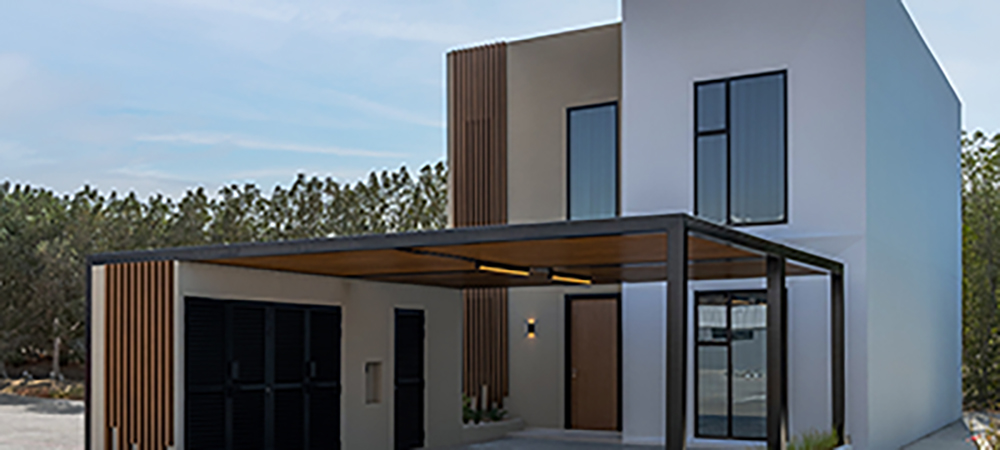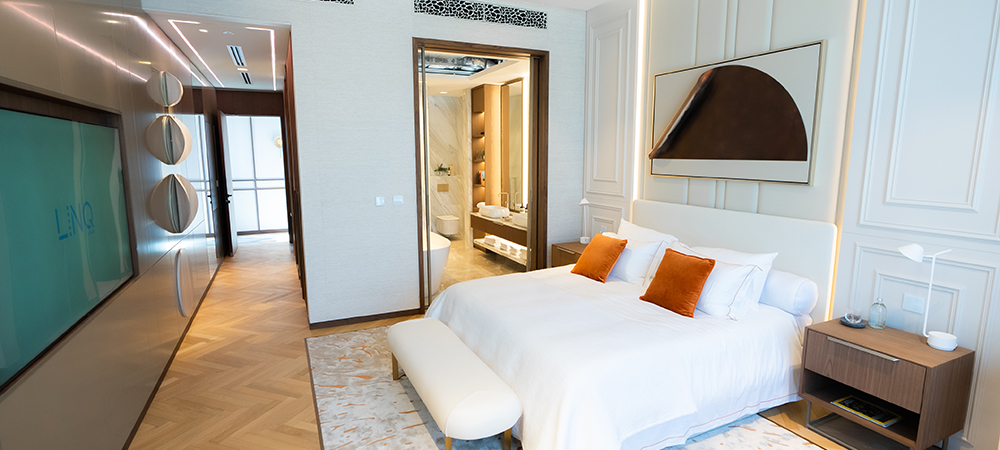
Modular construction is transforming hotel development in the GCC, enabling faster, cost-effective, and sustainable builds. LINQ’s Operations Manager, Graham Petty, discusses how advanced materials and regulatory approvals are driving the future of hospitality infrastructure.
What are the key technological advancements that enable modular construction to meet the GCC’s ambitious hotel expansion goals?
The hospitality sector in the GCC is expanding at an extraordinary pace, with the UAE and Saudi Arabia leading the charge in hotel development. With room capacity set to double by the end of the decade, the industry needs a construction solution that is not only faster but also delivers exceptional quality and scalability. That’s precisely where modular construction comes in and at LINQ, we’re at the forefront of this transformation. Modular construction is perfectly suited to hospitality because it thrives on precision and repeatability. By manufacturing hotel rooms, villas and resort units in a controlled environment, we ensure every element is crafted to exact specifications before it even reaches the site. This level of quality control simply isn’t achievable with traditional construction, where weather, labour constraints and logistical challenges often cause delays and inconsistencies. With modular, we lock in 3D designs early, optimise the entire build process and eliminate waste—delivering projects in record time without compromising on excellence.
How does LINQ’s modular construction approach compare to traditional methods in terms of efficiency, sustainability and cost-effectiveness?
Unlike traditional construction, where everything happens sequentially on-site, modular construction allows us to build key components in a controlled factory setting while site work progresses simultaneously. This parallel process speeds up project timelines significantly—by as much as 50%, according to a McKinsey report—while also reducing project out-turn costs by 20%.
This approach can be significantly more sustainable, as a factory-controlled setting and highly optimised, repeatable processes enable us to minimise resource utilisation. The reduction in materials can be truly staggering—according to a report by the Waste & Resources Action Programme (WRAP), modular construction can reduce waste materials such as timber, cardboard, plastics and concrete by up to 90% compared to traditional construction methods.
What challenges does modular construction face in the region and how has LINQ navigated regulatory and logistical hurdles, particularly with Dubai Municipality’s licensing process?

There are still a few lingering misconceptions about modular construction in the hospitality sector, perhaps the biggest of which is that modular buildings compromise on quality, particularly when it comes to acoustics and structural integrity. Some in the industry still associate modular with outdated prefab concepts, but the reality today is completely different.
At LINQ, we’re challenging these perceptions and one of the key turning points in our journey was securing a license from Dubai Municipality to pilot the design and construction of highly sustainable, customised modular G+6 units for both commercial and residential developments. This official validation has been a game-changer, giving developers the confidence that modular construction meets and even exceeds, regulatory and industry standards.
And it’s not just theory—we’ve proven the model in action. Throughout 2024, we successfully manufactured and installed 218 serviced apartments at Sindalah, the iconic island destination in Saudi Arabia. This project wasn’t just about delivering at scale; it showcased how modular can be both premium and sustainable. By pioneering advanced materials that enhance efficiency, durability and environmental performance, we demonstrated that modular is the perfect fit for luxury hospitality.
Hotel brands and developers are now coming to us with a clear understanding that modular isn’t just a fast alternative—it’s a smarter, more sustainable way to build world-class hospitality spaces.
Can you elaborate on the innovative sustainable materials LINQ has developed and how they enhance acoustic, thermal and fire performance in modular buildings?
To address perceptions around acoustic and thermal performance, we have brought cutting-edge materials and engineering solutions to the region. A great example is our use of lightweight cellular concrete infill, which sets a new benchmark for hotel construction. This innovation enhances acoustic insulation, ensuring guests enjoy the same—if not better—soundproofing than they would in a traditionally built hotel. It also improves thermal efficiency, reducing energy costs and meets the highest fire safety standards.
By integrating these advanced materials into our manufacturing process, we’re proving that modular doesn’t just match conventional construction—it can exceed it. Our goal is to show developers, operators and guests alike that modular-built hotels can deliver world-class quality, comfort and durability, while offering the speed and efficiency the hospitality industry needs now more than ever.
How do you see modular construction evolving in the GCC over the next decade and what role will it play in shaping the future of hospitality infrastructure?

In the short term, we anticipate strong interest from resorts and boutique hotels, where the ability to create beautifully designed, sustainable and rapidly deployable accommodation is a huge advantage. But as confidence in modular grows—and as regulatory frameworks allow for higher structures—there’s no reason we won’t see full-scale, multi-storey modular hotels become the norm. The sky, quite literally, is the limit!
And if you need further proof that this paradigm will be embraced by pionnering projects, look no further than ultra-luxury destinations like Sindalah. Developers at the highest level have embraced modular because it delivers on all fronts—exceptional quality, stunning aesthetics and rapid project timelines. If modular construction can meet the standards of the most exclusive developments in the region, there’s no reason for anyone to hesitate.




